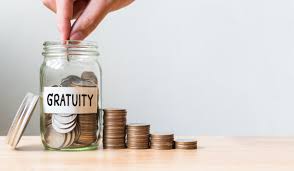- Features of Finance House Personal Finance
- Finance House Personal Loan Interest Rates
- Factors Affecting Finance House Personal Loan Interest Rates
- How to Calculate Finance House Personal Loan Monthly Instalments?
- Eligibility Criteria for Finance House Personal Loan Interest Rates
- Frequently Asked Questions
Finance House Personal Loan Interest Rates

- Minimum Salary 5000 AED
- EMI Tenure up to 48 Months
- Lowest Interest Rates
Get personal loan at Lowest Interest Rate

Finance House, founded in 2004, is a well-known financial institution in the UAE. It offers a wide range of products and services designed to meet the financial needs of individuals and businesses.
One of the standout products offered by Finance House is its personal finance service called 'Easy Finance'. With this personal finance product, you can easily access the necessary funds to meet your financial goals such as financing home renovations, purchasing a new car, or paying for educational expenses.
Before going for the Finance House personal finance, it is vital to consider the interest rate. This rate can vary depending on the loan amount, repayment period, and credit score of the borrower. Thus, it is important to understand the Finance House personal loan interest rate to ensure that the loan is affordable and feasible for you.
In the following article, we will delve deeper into the Finance House personal loan interest rates, understand which factors influence them, and look at more related aspects.
Features of Finance House Personal Finance
Before going to the Finance House personal loan interest rates, let’s take a look at the remarkable features of personal finance –
- Finance House personal finance is known as ‘Easy Finance’.
- You are not required to transfer your salary to avail of the Finance House personal finance.
- Maximum finance amount – AED 320,000
- The loan comes with a flexible repayment period of up to 48 months.
- You can also use the proceeds of the loan for debt consolidation.
- A top-up loan is available if required
- Get competitive interest rates on Finance House personal finance.
- Get a life credit card free with the loan.
- Simple documentation is required to obtain the finance.
- A bank statement is not needed to get the loan.
Finance House Personal Loan Interest Rates
Finance House personal loans are offered at reducing interest rates, which start as low as 20%.
Reducing Rate of Interest
It is a method of calculating the interest charged on a loan and is commonly known as the diminishing balance method. In this method, the interest charged on a loan is calculated based on the outstanding loan amount, which reduces over time as the borrower repays the loan.
The reducing rate of interest method is beneficial for borrowers as it results in a lower total interest payable over the life of the loan compared to other methods of calculating interest, such as the fixed interest rate method.
In the fixed interest rate method, the interest charged on a loan is calculated based on the original loan amount, regardless of the outstanding loan amount. This means that the borrower pays the same amount of interest over the life of the loan, even if they make early repayments.
Factors Affecting Finance House Personal Loan Interest Rates
Listed below are the key factors affecting Finance House personal loan interest rates –
1. Credit Score
Credit score is one of the most critical factors that lenders consider when determining the interest rate for a personal loan. A higher credit score generally indicates that the borrower is more financially responsible, making them less of a risk to the lender. Thus, borrowers with a higher credit score may qualify for lower interest rates compared to those with lower credit scores.
2. Income
The income of the borrower is an essential factor that can influence the Finance House personal loan interest rate. A higher income indicates that the borrower has the financial capability to repay the loan, which makes them less of a risk to the lender. For this reason, individuals with higher incomes may qualify for lower interest rates compared to those with lower incomes.
3. Employer Status
The employer status of the borrower is another factor that can affect Finance House personal loan interest rates. Borrowers who work for reputable and stable employers may be viewed as more financially stable by the lender, which brings down their risk factor. Consequently, individuals who work for reputable companies may qualify for lower interest rates compared to those who work for less reputable or unstable companies.
Relationship with the Bank: Individuals who have a long-standing and positive relationship with the bank may be viewed as more trustworthy by the lender. So if you have a long-standing relationship with Finance House, you may qualify for lower interest rates compared to new customers.
4. Default History
Individuals with a history of defaults, late payments, or bankruptcy may be viewed as higher risk by the lender. As a result, they may qualify for higher Finance House personal loan interest rates compared to those with a clean credit history.
5. Age of Applicant
The age of the applicant can also influence the interest rate of a personal loan. Older individuals may be viewed as less of a risk due to their experience and stability, and may qualify for lower interest rates compared to younger individuals.
6. Debt to Income Ratio
The debt to income ratio is another critical factor that can influence the Finance House personal loan interest rate. A high debt-to-income ratio may indicate that the borrower has a higher amount of debt than their income, making them less likely to repay the loan. Thus, individuals with a high debt-to-income ratio may qualify for higher interest rates compared to those with a lower debt-to-income ratio.
7. Loan Amount and Tenure
The loan amount and tenure can also influence the interest rate of a personal loan. Generally, longer loan tenures and higher loan amounts may result in higher interest rates.
8. Overall Credit Profile
Lastly, the overall credit profile of the borrower is evaluated, including factors such as credit history, payment behaviour, and existing debt. Borrowers with a positive overall credit profile may qualify for lower interest rates compared to those with a negative credit profile.
How to Calculate Finance House Personal Loan Monthly Instalments?
Generally, the Finance House personal loan estimated monthly instalments depend on the following components –
- Loan Amount: The loan amount is the total amount of money that an individual has borrowed from the Finance House. The loan amount has a direct impact on the monthly instalment of the loan. Generally, the higher the loan amount, the higher the monthly instalment. This is because the borrower will need to pay back a larger amount of money over the loan repayment period.
- Loan Repayment Period: The loan repayment period is the length of time over which the borrower will be required to pay back the loan. The loan repayment period can range from 12 to 48 months, depending on the borrower's preference and financial situation. Generally, a longer repayment period will result in a lower monthly instalment, as the borrower will have more time to pay back the loan amount. However, a longer repayment period will also result in more interest over the life of the loan.
- Interest Rate: The interest rate is the amount charged by the Finance House for lending money. The interest rate has a direct impact on the monthly instalment of the loan. Generally, a higher interest rate will result in a higher monthly instalment, as the borrower will be required to pay back more interest over the life of the loan. On the other hand, a lower interest rate will result in a lower monthly instalment, as the borrower will be required to pay back less interest over the life of the loan.
Eligibility Criteria for Finance House Personal Loan Interest Rates
Before applying for personal finance, it is essential to qualify for the eligibility criteria as tabled below –
| Parameter | Eligibility Criteria |
|---|---|
| Age range | 21-60 years |
| Salary transfer | Not required |
| Nationality | UAE nationals and expatriates |
| Employment |
|
| Minimum Income | AED 5,000 per month |
| Bank statement | Not needed |
Refer to the 'Frequently Asked Questions’ section next to know several other aspects of Finance House personal loan interest rates.
Frequently Asked Questions
Ans: The Finance House personal loan interest rate varies depending on several factors, such as the loan amount, loan repayment period, credit score, income, and overall credit profile of the borrower. Currently, the interest rate starts from 20%.
Ans: To improve your chances of getting a lower interest rate on a Finance House Personal Loan, you can maintain a good credit score, have a stable income, work for reputable employers, maintain a positive relationship with the bank, and have a clean credit history.
Personal Loan Top Searches
Personal Loan in UAE | Urgent Cash Loan in UAE | Borrow Money Online in UAE | Personal Loan for Expats | Private Lenders in UAE | Buyout loan UAE | Personal Loan in UAE 4000 Salary | Personal Loan in UAE 3000 Salary | Personal Loan Without Salary Transfer | Personal Loan in UAE 2500 Salary | Personal Loan in UAE 5000 Salary | Personal Loan in UAE 2000 Salary | Personal Loan for Non Listed Companies | Personal Loan for Self-Employed Professional | Personal Loan in UAE with Bad Credit ScorePersonal Loan Categories
Personal Loan Bank Wise

More From Personal Loans
- Recent Articles
- Popular Articles








































